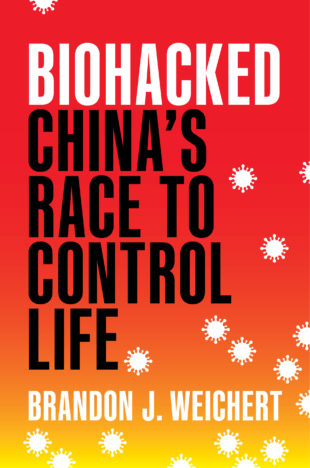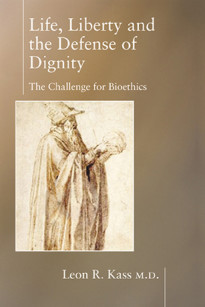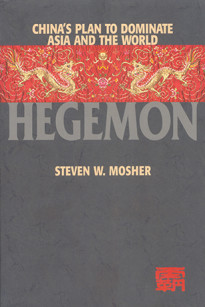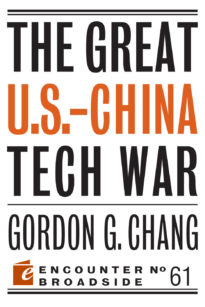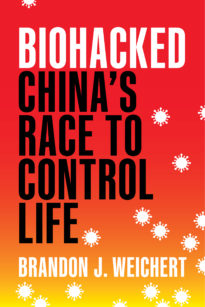The single greatest threat to the United States today is not nuclear weapons or terrorism. It isn’t even cyberwarfare or foreign attacks on our democracy. The primary threat America faces today comes from the biotech sector in the People’s Republic of China. Only in the biotechnology space could one capture and manipulate the very building blocks of life to destroy one’s enemies.
That same technology could also be used to genetically enhance the people of the country that the technology is being used in, like in some bad science fiction film. This is particularly true if, as in the case of China, this takes place in an unregulated and opaque system, where so much biotechnology research and development is being done. And let’s not even get into (yet) the dangers that improperly regulated experimental biotech R&D pose to the world in the form of major accidents that could fundamentally upend the global order and economy, as the novel coronavirus from Wuhan, China, did in late 2019.
Using a technology called CRISPR, geneticists have the capability to identify, chart, and “edit” the genes that construct our very bodies. Over time, this technology can be developed into a potentially Earth-shattering offensive strategic weapon. This is especially true as the rising People’s Republic of China races forward with its national development. More dangerously, the Chinese Communist Party (CCP), which rules China with an iron fist, has no history of respecting the value of the individual, or that of human life in general.
Over the course of this book, you will see how the character of the Chinese regime influences every aspect of its country’s development. By understanding that China is one of the most prolific human rights violators in the world, that the Chinese regime is the very embodiment of “might makes right,” you will understand just how dangerous allowing this regime to develop the advanced tools needed to dominate the biotech industry is for the rest of the world. The CCP is a regime that has subjugated Evangelical Christians. This is a group that is in the process of colonizing Tibet by sending ethnic Han to the occupied territory in an effort to make the Tibetans a minority in their own land. The CCP is currently in the process of ethnically cleansing the Muslim Uighurs from the Xinjiang Province.
Meanwhile, this regime systematically represses the democratic people of Hong Kong.[i] Dotting China is a vast network of slave-labor camps—known as Laogai prisons—wherein political prisoners are made to work.[ii] Falun Gong prisoners are routinely executed on trumped up charges so that Chinese authorities can harvest their organs and sell them on the black market.[iii] The CCP uses its immense wealth and power quite literally to spy on every single one of its citizens with nationwide closed-circuit camera systems.[iv] It denies its people the ability to access all of the worldwide web, out of fear that “foreign ideas” will foment a revolt against the CCP’s totalitarian rule.[v]
Until 2014, also, there was a decades-long state-enforced “one-child” policy that led to the infanticide of millions of unborn children. Needless to say, this is a regime that should not be trusted with the power it already wields. Allowing the CCP to conduct untrammeled biotechnology research and development is only asking for trouble.
The biotech battle between China and the United States is not merely confined to the realm of scientific research. It crosses a multitude of fields and plays out in unpredictable, downright dangerous ways. For instance, the biotech battle is fought in the arena of intellectual property (IP) law. China is a persistent and flagrant violator of international IP laws.
China is a country that one in five US corporations accuse of having stolen their intellectual property at some point in the last decade. According to the 2017 report from the Commission on the Theft of American Intellectual Property, “Chinese theft of American IP costs anywhere between $250 billion to $600 billion annually.”[vi] In every sector, from manufacturing to computers to biotech, China has stolen a treasure trove of proprietary data, all in an effort to compete with the Americans and to leapfrog US companies in the great race for world technological dominance.
China’s biotech battle with the United States also plays out in the international business domain. Not only have Chinese spies stolen IP from American companies, but, paradoxically, American businesses and entrepreneurs have entered into partnerships with Chinese firms. Even as the US and Chinese governments tussle with each other at the geopolitical level, the business and academic communities of the two rivals cooperate with each other on a routine basis. What’s more, as you will see, the US government assists the Chinese government in sensitive biotech R&D projects!
During the Cold War, America’s private sector was very often the silver bullet to overcoming the centrally planned leviathan of the Soviet Union. In today’s new cold war, America’s private sector routinely cooperates with China. In their exchanges, Chinese firms (and therefore, the Chinese government) learn about innovative new business practices and proprietary research from Americans that these Chinese firms then incorporate into their own products. With knowledge gleaned from their American counterparts, the Chinese firms then create products that are meant to empower China at the expense of the United States.
China has targeted American academia for exploitation. Given that biotechnology is part of the “knowledge-based economy,” academic research plays a large role in developing new products for this industry to sell. In recent days, there have been various reports of extensive Chinese efforts to steal proprietary research from American and Canadian firms or publicly funded research institutes.
